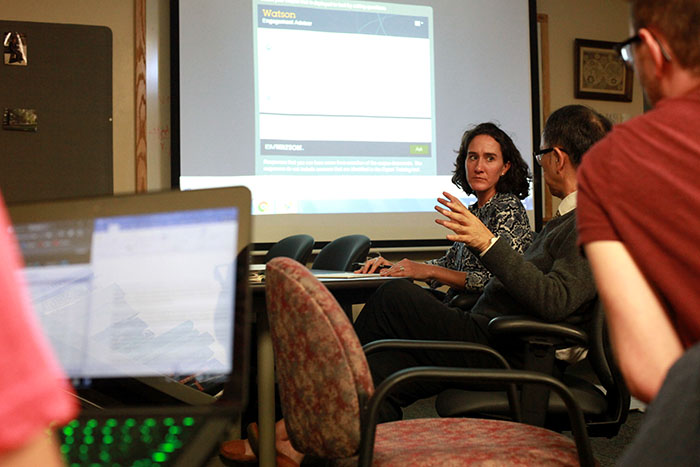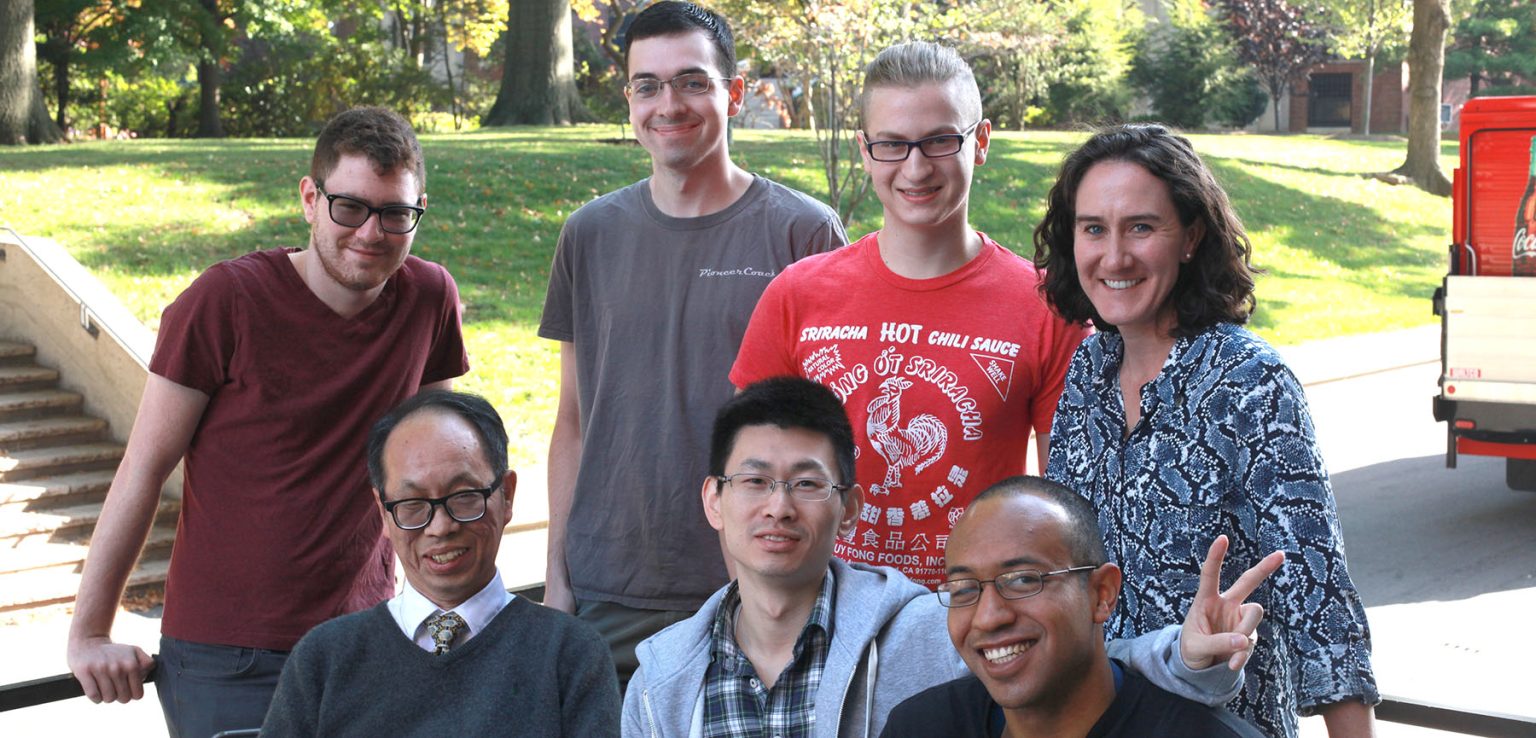And throughout the project, which is focusing on questions about regulations in public housing, Watson learns as the students learn.
“I believe we’re the first college in the United States to bring together multiple disciplines to collaborate on a Watson system for an undergraduate research project,” said Erin Burke, assistant dean at Fordham College Rose Hill and director of undergraduate research and Fordham’s pre-law program.
The Watson project merges a graduate course on cognitive computing with an undergraduate pre-law tutorial on how to use the system. The collaborative courses are being taught by Frank Hsu, PhD, and Burke. Hsu is the Clavius Distinguished Professor of Science and director of the Laboratory of Informatics and Data Mining.
Watson is being fed all the regulations from New York City Housing Authority (NYCHA), formatted in a way so that Watson can identify the answers to specific questions. Some questions include “What do I do if my building loses heat? Can I have a pet? What are the income restrictions for public housing?”

The documents analyzed by Watson and the students will eventually help lawyers working with underserved communities to obtain legal information more quickly and accurately than ever before, said Burke. She noted that even plainly written websites that seek to translate regulations into accessible language presume that the reader knows how to phrase the question appropriately—or is even looking in the right place. Watson can better understand what people mean to ask in their everyday language.
“What we’re doing will have real applications for the community in which we’re living by making it easier to navigate critical information,” said Burke.
Burke, who is a graduate of both Fordham Law and the Graduate School of Arts and Sciences (she holds a master’s in computer sciences) already knows the cross disciplinary approach firsthand. She said that lawyers, who are held to a high standard of language, must understand how technology is processing that language.
“Pre-law students are getting exposure to technology that will inevitably accompany them in their careers,” she said. “We’re producing more relevant future lawyers and, at the same time, our computer scientists will better understand developments in the law.”
The chance for the students to work with Watson before it becomes available to the general public represents an extraordinary opportunity, said Hsu. A small group from both classes convenes each week in the informatics and data mining lab to fine-tune the questions, as well as the answer documents being entered into Watson. Some students, like senior Dominick Marinucci, have had experience with law through internships, while others, like sophomore Ian Granger, not so much.
“I have no legal experience so this project is teaching me how to dig into another field that I know nothing about,” said Granger.
Then there is the process itself, which includes predicting questions that lawyers may ask about NYCHA.
“We try to figure out what knowledge is out there; then we figure out how do we best deliver it to Watson,” said junior James Apfe.
“We also have to keep in mind the impact that this project will have on the lives of people,” added senior Amell Peralta.
The students are also aware they are working on the early stages of cognitive computing and of all the concerns that surround it and Artificial Intelligence.
“The technology itself won’t harm us and can never surpass human beings because we created it,” said graduate student Xiaojie Lan. “But the terrible thing is people behind the technology may use it in the wrong way.”
It was a concern shared by Granger.
“Watson will become smarter than us and while that does scare me a bit, I think that there’s a potential for new learning and new concepts.”
Hsu was more holistic in his view.
“There are three directions of scientific discovery: one is the science of the physical universe—like physics and chemistry. The second is the science of the living systems—such as biology and neuroscience. Then the third is the science of information knowledge.
“That’s what this work is about: from data, to information, to knowledge, to wisdom, and then to enlightenment.”

